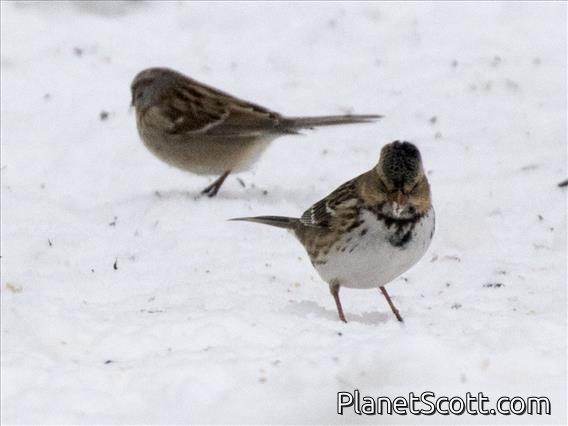Harris's Sparrow (Zonotrichia querula)

Harris's Sparrow (Zonotrichia querula)
×


Harris's Sparrow (Zonotrichia querula)
About Harris's Sparrow (Zonotrichia querula)
- Kingdom: Animals
- Phylum: Chordates
- Class: Birds
- Order: Perching Birds
- Family: Old World Buntings
Harris's sparrow is a large sparrow. Their breeding habitat is the north part of central Canada, making it Canada's only endemic breeding bird. In the winter they migrate to the Great Plains states of the United States, from southern South Dakota to central Texas. The common name of this species commemorates the American amateur ornithologist Edward Harris (1799–1863).
Source: Wikipedia
Lifelists
Trips
No trip reports available.Visits
-
×


